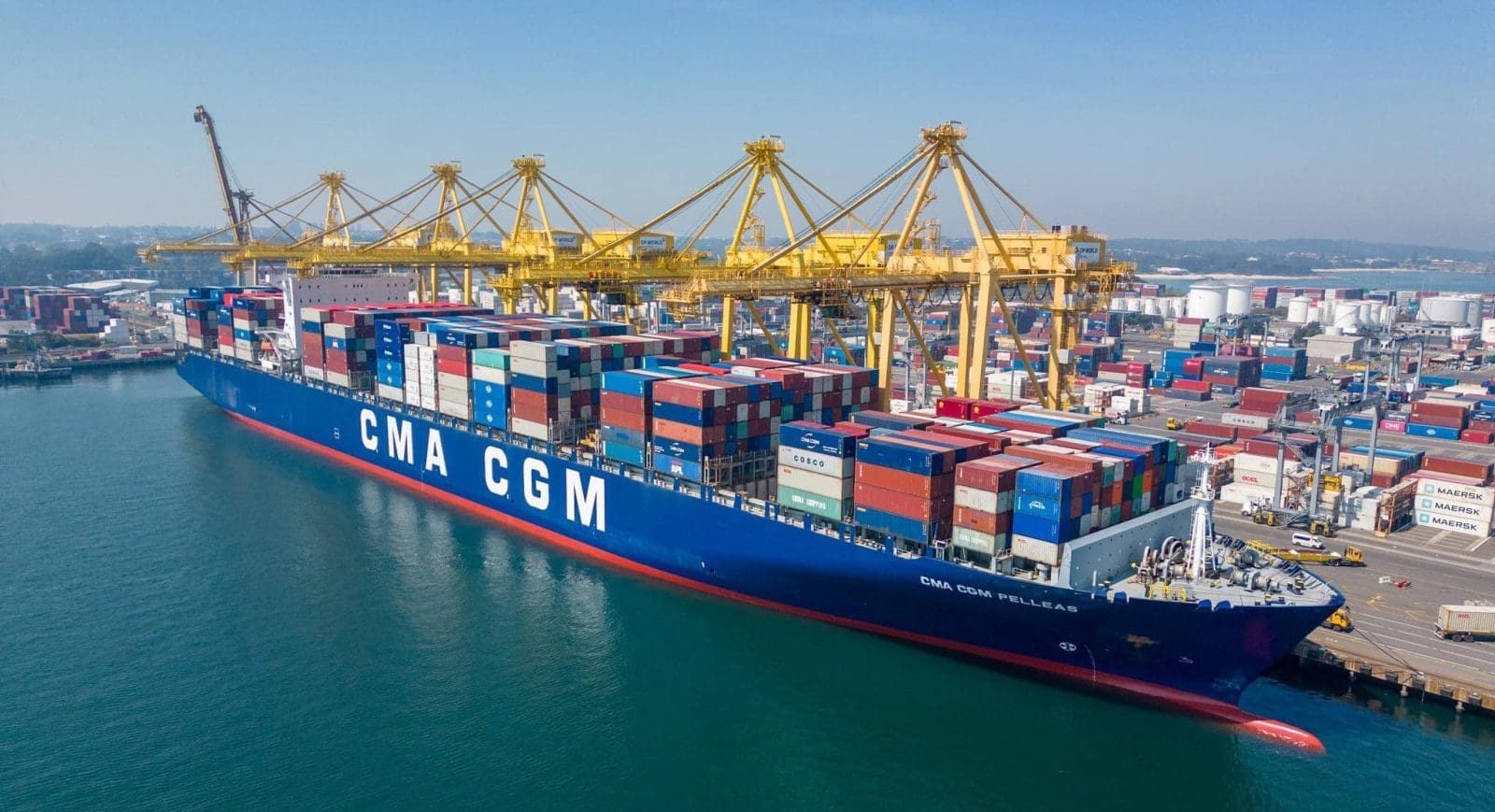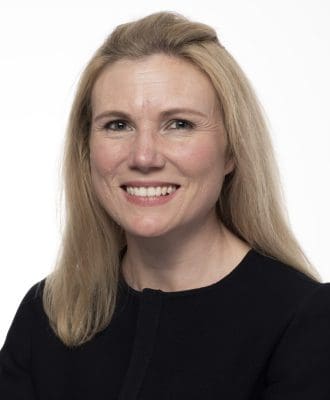
The CMA CGM Pelleas at the DP World terminal at Sydney’s Port Botany in September 2023. At 350m, the vessel was the longest to visit Sydney’s container port. Photo: NSW Ports
THE push to introduce a container levy as a substitute for the controversial biosecurity protection levy is gaining momentum with producer groups, and freight groups support increased import charges rather than the Federal Government’s BPL proposal.
Agricultural representative groups are expected to push for a container levy when the Rural and Regional Affairs and Transport Legislation Committee holds its first public hearing into the BPL tomorrow.
The Liberal-National Coalition, the Greens and Independents have also advocated the container levy funding approach.
A program has yet to be released for the hearings, but a selection of producer groups and trade bodies is predicted to be called up to answer questions based on submissions sent into the inquiry.
The BPL bill passed the House of Representatives, without support from LNP, Greens and Independents, and presently is before the Senate and the RRAT committee inquiry.
In submissions, several groups, including GrainGrowers, Grain Producers Australia, NSW Farmers and WA Farmers have called for the government to investigate and implement a container levy either instead of the BPL or as an additional measure.
They say the BPL does not recognise that importers are the primary “risk creators” that should contribute more towards Australia’s biosecurity protection.
The BPL will reportedly collect $47.5 million from primary producers, with contributions to be based on a particular commodity’s share of overall agricultural production.

GrainGrowers CEO Shona Gawel.
“A significant weakness of a beneficiaries-pays mechanisms such as the Biosecurity Protection Levy is that it fails to provide any market signals to those creating biosecurity risks, making it a relatively inefficient mechanism for reducing biosecurity risks,” GrainGrowers CEO Shona Gawel said in her submission to the inquiry.
In response to the BPL, the LNP, Greens and some Independents have voiced their support for a container levy.
In his May 2023 budget reply speech, Opposition leader Peter Dutton formally announced the LNP would “establish an importer container levy” if elected in 2025.
In February, Queensland Greens MP Elizabeth Watson-Brown said her party believes “risk creators, like importers, need to pay their fair share”.
“The Greens will be pushing the government to commit to progressing a levy on risk creators in the form of a container levy, or similar, as a matter of priority,” Ms Watson-Brown said.
Independent Member for Indi Helen Haines said the government needed to at least address why it would not proceed with a container levy.
“[T]he government must address head-on why it will not support a container levy on importers,” Ms Haines said.
Container levy history
This is not the first time a container levy has been proposed as a solution to securing a sustainable biosecurity funding model.
It was initially recommended as part of a report presented by Wendy Craik, chair of the Intergovernmental Agreement on Biosecurity review panel, in July 2017.
As part of the 2018-19 Budget, the former LNP Government announced it would introduce a levy on all containers and non-containerised cargo transported to Australia by sea from 1 July 2019.
The measure would apply a $10.02 levy per twenty-foot container or equivalent, and non‑containerised cargo will incur a levy of $1/t.
After backlash from importers and industry sectors, the levy was delayed until formally abandoned in mid-2020.
In a statement, the then Department of Agriculture, Water and the Environment said that “a levy could not be implemented without significant regulatory impacts on industry and proposed levy payers”.
DAWE also highlighted the decision was made in consideration of the ongoing impacts of drought, bushfires and COVID-19 on the Australian economy.
Levy barriers
In the past year, there has been some hope that the government would announce a container levy alongside the user-pays model.
However, recently Agriculture Minister Murray Watt and the Australian Department of Agriculture, Fisheries and Forestry have alluded to potential negative trade implications from a container levy.
In its submission to the inquiry, DAFF said “Australia would need to ensure that any new container levy or similar charge on imports would be consistent with Australia’s international trade law obligations”.
In February, Mr Watt said the government was still “making a decision” about how it would proceed with a container levy.
“We are continuing to examine a container levy, but, as I’ve previously indicated, there are some World Trade Organization legal issues that we need to work through to ensure that we can charge a container levy,” he said in response to a question posed in parliament.
“As soon as that work is completed, I’ll of course update the chamber.”
Increased importer charges
In response to criticism over the BPL framework, DAFF and the Federal Government have pointed out that importers are paying more as part of the current system of charges.
As part of its submission, DAFF said the Craik review suggested a container levy as a method to supplement the existing charge on the Full Import Declarations.
A FID is required for imports over the value of $1000.
“The government implemented an increase to the FID from 1 July 2023, increasing the FID charge for sea cargo from $49 to $63,” DAFF said.
“As at 8 April 2024 cost recovery revenue from importers was $274.8 million for FY 2023-24, including an additional $35.7 million resulting from the increases to the FID and other charges that took effect from 1 July 2023.”
Minister for Regional Development, Local Government and Territories Kirsty McBain said these increases were more than what was recommended by the Craik review, “which suggested a $10 increase for sea cargo FID in lieu of a container levy”.
Another model
In its submission to the inquiry, the Freight Trade Alliance and Australian Peak Shippers Association said they would accept further increases to the Full Import Declaration charges if the BPL was abandoned and if the government could further regulate the Terminal Access Charge system.
The FTA and APSA, which represents bodies including Grain Trade Australia and the Australian Cotton Shippers Australia, said there was the option for importers “to absorb the BPL quantum proposed to be paid by producers”.
FTA director and APSA secretariat Paul Zalai said it is estimated that “4.2 million FIDs will be completed by this financial year”.
He said by dividing $47.5M by an estimated 4.2M FIDS, this would equate to an extra $11.50 per FID.
“What we propose is really demonstrating a pragmatic and simple solution,” Mr Zalai said.
“We’re just using the existing model but saying change the quantum and…increase it so the producers don’t have to pay.”
Mr Zalai said FTA and APSA were open to working with the government to expand this model to make fairer for different industries and even incentivise those who “go above and beyond to minimize the biosecurity risk”.
He said a proposed increase in these charges would be minimal compared to the current cost burdens on importers and exporters due to the current TAC regime.
He said these charges were costing industry “more than $500M per annum”.
“DP World amongst there industrial action this year from February 1 increased their terminal access charge by 52pc through the Port of Melbourne.
“If they want to do something for the importers and exporters of this country, do something about the unregulated and incontestable terminal-access charges charged by stevedores that are going through the roof.”
Grain Central: Get our free news straight to your inbox – Click here



HAVE YOUR SAY